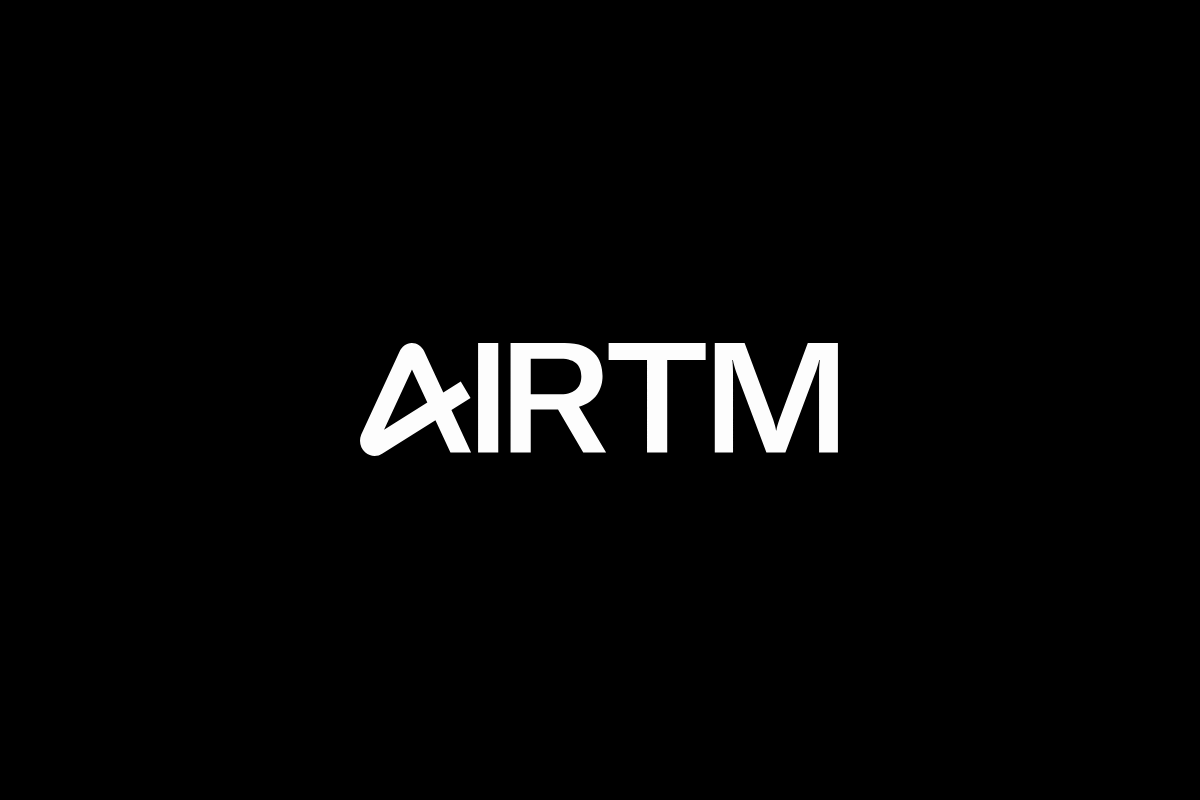Fintech
SEC Adopts Final Rules for the Disclosure of Payments by Resource Extraction Issuers

Washington D.C.–(Newsfile Corp. – December 16, 2020) – The Securities and Exchange Commission today voted to adopt final rules that will require resource extraction issuers that are required to file reports under Section 13 or 15(d) of the Securities Exchange Act of 1934 to disclose payments made to the U.S. federal government or foreign governments for the commercial development of oil, natural gas, or minerals. The rules implement Section 13(q) of the Exchange Act, which was added by the Dodd-Frank Wall Street Reform and Consumer Protection Act (“Dodd-Frank Act”). The rules are intended both (1) to achieve the statutory objective of increasing the transparency of payments to governments for the purpose of the commercial development of their oil, natural gas, and minerals and (2) to comply with the Congressional Review Act (CRA).
The adopted rules will require a domestic or foreign reporting issuer to disclose payments made by the issuer or a subsidiary or entity controlled by the issuer to the U.S. federal government or a foreign government if the issuer engages in the commercial development of oil, natural gas, or minerals.
The Commission adopted rules to implement Section 13(q) in 2016, but the 2016 Rules were disapproved pursuant to the CRA by a joint resolution of Congress. Although the 2016 Rules were disapproved under the CRA, the statutory mandate in Section 13(q) of the Exchange Act has remained in effect. As a result, the Commission remains statutorily obligated to issue a new rule, however, pursuant to the CRA the Commission may not reissue the disapproved rule in “substantially the same form” or issue a new rule that is “substantially the same” as the disapproved rule. Today’s action completes a rulemaking process commenced in 2019 that was designed to address both requirements.
“The final rules represent another step in the Commission’s continued efforts to implement Section 1504 of the Dodd-Frank Act,” said SEC Chairman Jay Clayton. “The final rules are designed to achieve the statutory objective of promoting the transparency of resource extraction issuers’ payments to governments while adhering to the CRA’s limitation that the new rule not be substantially the same as the disapproved rule. Achieving this was not a straightforward task, and I applaud the staff for their considerable efforts in these unique circumstances.”
The final rules will be effective 60 days following publication in the Federal Register.
* * *
FACT SHEET
Disclosure of Payments by Resource Extraction Issuers
The Securities and Exchange Commission today adopted rules to implement Section 13(q) of the Exchange Act. The rules will require resource extraction issuers (defined as oil, natural gas, and mining companies that are required to file reports under Section 13 or 15(d) of the Securities Exchange Act of 1934) to file a Form SD on an annual basis that includes information about payments related to the commercial development of oil, natural gas, or minerals that are made to a foreign government or the Federal Government.
Background
Section 13(q) was added to the Exchange Act in 2010 by Section 1504 of the Dodd Frank Act. Section 13(q) directs the Commission to issue final rules that require each resource extraction issuer to include in an annual report information relating to any payment made by the resource extraction issuer, a subsidiary of the resource extraction issuer, or an entity under the control of the resource extraction issuer to a foreign government or the federal government for the purpose of the commercial development of oil, natural gas, or minerals. The Commission adopted rules to implement Section 13(q) in 2016, but the 2016 Rules were disapproved pursuant to the Congressional Review Act by a joint resolution of Congress.
Highlights
The final rules will, among other things:
- require public disclosure of company-specific, project-level payment information;
- define the term “project” to require disclosure at the national and major subnational political jurisdiction, as opposed to the contract, level, recognizing that more granular contract-level disclosure could be used to satisfy the rule;
- add two new conditional exemptions for situations in which a foreign law or a pre-existing contract prohibits the required disclosure;
- add a conditional exemption for smaller reporting companies and emerging growth companies;
- define “control” to exclude entities or operations in which an issuer has a proportionate interest;
- limit the liability for the required disclosure by deeming the payment information to be furnished to, but not filed with, the Commission;
- add relief for issuers that have recently completed their U.S. initial public offerings; and
- extend the deadline for furnishing the payment disclosures.
What’s Next?
Rule 13(q)(1) will become effective 60 days after publication in the Federal Register. Following a two-year transition period, an issuer will be required annually to submit Form SD no later than 270 days following the end of its most recently completed fiscal year. For example, if the rules were to become effective on March 1, 2021, the compliance date for an issuer with a December 31 fiscal year-end would be Monday, September 30, 2024 (i.e., 270 days after its fiscal year end of December 31, 2023).
Fintech
Fintech Pulse: Your Daily Industry Brief (Chime, ZBD, MiCA)

As we close out 2024, the fintech industry continues to deliver headlines that underscore its dynamism and innovation. From IPO aspirations to groundbreaking regulatory milestones, today’s updates highlight the transformative power of fintech partnerships, regulatory evolution, and disruptive technologies. Here’s what you need to know.
Chime’s Quiet Step Toward Public Markets
Chime, the U.S.-based financial technology startup best known for its digital banking services, has taken a significant step by filing confidential paperwork for an initial public offering (IPO). As one of the most valuable private fintechs in the U.S., Chime’s move could potentially signal a renewed appetite for fintech IPOs in a market that has been cautious following fluctuating valuations across the tech sector.
With a valuation that reportedly exceeded $25 billion in its last funding round, Chime’s IPO could set a new benchmark for the industry. Observers note that its strong customer base and revenue growth may make it an appealing choice for investors seeking to capitalize on the digital banking boom. However, the timing and success of the IPO will depend on broader market conditions and the regulatory landscape.
Source: Bloomberg
ZBD’s Pioneering Achievement: EU MiCA License Approval
ZBD, a fintech company specializing in Bitcoin Lightning network solutions, has made history by becoming the first to secure an EU MiCA (Markets in Crypto-Assets Regulation) license. This landmark approval by the Dutch regulator positions ZBD at the forefront of compliant crypto-fintech operations in Europe.
MiCA, which aims to harmonize the regulatory framework for crypto-assets across the EU, has been a focal point for industry players aiming to establish legitimacy and expand their offerings. ZBD’s achievement not only validates its operational rigor but also sets a precedent for other fintech firms navigating the evolving regulatory landscape.
Industry insiders view this as a strategic advantage for ZBD as it broadens its footprint in Europe. By leveraging its regulatory approval, the company can accelerate its product deployment and establish trust with institutional and retail users alike.
Source: Coindesk, PR Newswire
The Fintech-Credit Union Synergy: A Blueprint for Innovation
The convergence of fintechs and credit unions continues to reshape the financial services ecosystem. Collaborative initiatives, such as the one highlighted in the recent partnership between fintech innovators and credit unions, are proving to be a potent force in delivering tailored financial solutions.
This “dream team” approach allows credit unions to leverage fintech’s technological expertise while maintaining their community-focused ethos. Key areas of collaboration include digital payments, personalized financial management tools, and enhanced loan processing capabilities. These partnerships not only enhance member engagement but also enable credit unions to remain competitive in an increasingly digital-first financial environment.
Industry analysts emphasize that such collaborations underscore a broader trend of traditional financial institutions embracing fintech-driven solutions to bridge service gaps and foster innovation.
Source: PYMNTS
Tackling Student Loan Debt: A Fintech’s Mission
Student loan debt remains a pressing issue for millions of Americans, and a Rochester-based fintech aims to offer relief through its cloud-based platform. This innovative solution is designed to simplify loan management and provide borrowers with actionable insights to reduce their debt burden.
The platform’s features include repayment optimization tools, personalized financial education, and seamless integration with loan servicers. By addressing the complexities of student loan management, this fintech is empowering borrowers to make informed decisions and achieve financial stability.
As the student loan crisis continues to evolve, solutions like this highlight the critical role fintech can play in addressing systemic financial challenges while fostering financial literacy and inclusion.
Source: RBJ
Industry Implications and Takeaways
Today’s updates underscore several key themes shaping the fintech landscape:
- Regulatory Milestones: ZBD’s MiCA license approval exemplifies the importance of regulatory compliance in unlocking growth opportunities.
- Strategic Partnerships: The collaboration between fintechs and credit unions demonstrates the value of combining technological innovation with traditional financial models to drive customer-centric solutions.
- Market Opportunities: Chime’s IPO move reflects a potential revival in fintech public offerings, signaling confidence in the sector’s long-term prospects.
- Social Impact: Fintech’s ability to tackle systemic issues, such as student loan debt, showcases its role as a force for positive change.
The post Fintech Pulse: Your Daily Industry Brief (Chime, ZBD, MiCA) appeared first on News, Events, Advertising Options.
Fintech
SPAYZ.io prepares for iFX EXPO Dubai 2025

Leading global payments platform SPAYZ.io has confirmed it will be attending iFX EXPO Dubai 2025 on 14 to 16 January. Exhibiting at Stand 64 at Trade Centre Dubai, SPAYZ.io’s team of professionals will be on hand providing live demonstrations of its renowned payment services for payment providers. Attendees will also receive exclusive insight into SPAYZ.io’s plans for 2025 alongside early early access to its upcoming plans for the new year.
SPAYZ.io delivers a host of payment solutions that leverage the latest technological innovations and open access to the fastest growing emerging markets across Africa, Europe and Asia. Over the past year, there has been huge demand for its Open Banking and local payment method services, alongside bank transfers, mass payouts, online banking and e-wallets.
Yana Thakurta, Head of Business Development at SPAYZ.io commented: “We look forward to once again participating at iFX Dubai to expand our network of partners and clients. It’s a fantastic way to kick off the year, connecting with thousands of industry leaders from FOREX platforms to trading companies, and everything in between.
“Our key goal for iFX Dubai EXPO 2025 is to expand our portfolio of solutions and geographies. We’re using this as an opportunity to partner with like-minded entities who share our ambition to provide payment solutions that are truly global.”
Come meet SPAYZ.io’s team at the Trade Centre Dubai at Stand 64. You can also book a meeting slot with a member of a team.
The post SPAYZ.io prepares for iFX EXPO Dubai 2025 appeared first on News, Events, Advertising Options.
Fintech
Airtm Enhances Its Board of Directors with Two Strategic Appointments

Airtm, the most connected digital dollar account in the world, is proud to announce the addition of two distinguished industry leaders to its Board of Directors: Rafael de la Vega, Global SVP of Partnerships at Auctane, and Shivani Siroya, CEO & Founder of Tala. These appointments reflect Airtm’s commitment to innovation and financial inclusion as the company enters its next phase of growth.
“We are thrilled to welcome Rafael and Shivani to Airtm’s Board of Directors,” said Ruben Galindo Steckel, Co-founder and CEO of Airtm. “Their unique perspectives and proven track records will be invaluable as we continue scaling our platform to empower individuals and businesses in emerging markets. Together, we’ll push the boundaries of financial inclusion and innovation to create a more connected and equitable global economy. Rafael and Shivani bring a wealth of experience and strategic insight that will strengthen Airtm’s mission to connect emerging economies with the global market.”
Rafael de la Vega, a seasoned leader in fintech global partnerships and technology innovation, is currently the Global SVP of Partnerships at Auctane. With a proven track record of delivering scalable, impactful solutions at the intersection of fintech, innovation, and commerce, Rafael’s expertise will be pivotal as Airtm continues to grow. “Airtm has built a platform that breaks down barriers and opens up opportunities for people in emerging economies to connect to global markets. I am excited to contribute to its growth and help further its mission of fostering financial inclusion on a global scale,” said Rafael.
Shivani Siroya, CEO and Founder of Tala, is a pioneer in financial technology, renowned for empowering underserved communities through access to credit and essential financial tools. Her leadership in leveraging data-driven innovation aligns seamlessly with Airtm’s vision of creating more equitable financial opportunities. “Empowering underserved communities has always been at the core of my work, and Airtm’s mission resonates deeply with me. I’m thrilled to join the Board and work alongside such a dynamic team to expand access to financial tools that truly make a difference in people’s lives,” said Shivani.
The post Airtm Enhances Its Board of Directors with Two Strategic Appointments appeared first on News, Events, Advertising Options.
-

 Fintech6 days ago
Fintech6 days agoFintech Pulse: Your Daily Industry Brief (Revolut, Bestow, Advyzon, Tyme Group, Nubank)
-

 Fintech4 days ago
Fintech4 days agoFintech Pulse: Your Daily Industry Brief (Chime, ZBD, MiCA)
-

 Fintech7 days ago
Fintech7 days agoAsian Financial Forum returns as region’s first major international financial assembly in 2025
-

 Fintech PR3 days ago
Fintech PR3 days agoAccording to Tickmill survey, 3 in 10 Britons in economic difficulty: Purchasing power down 41% since 2004
-

 Fintech5 days ago
Fintech5 days agoAirtm Enhances Its Board of Directors with Two Strategic Appointments
-

 Fintech PR3 days ago
Fintech PR3 days agoPresident Emmerson Mnangagwa met this week with Zambia’s former Vice President and Special Envoy Enoch Kavindele to discuss SADC’s candidate for the AfDB
-

 Fintech5 days ago
Fintech5 days agoSPAYZ.io prepares for iFX EXPO Dubai 2025
-

 Fintech PR3 days ago
Fintech PR3 days agoStay Cyber Safe This Holiday Season: Heimdal’s Checklist for Business Security








